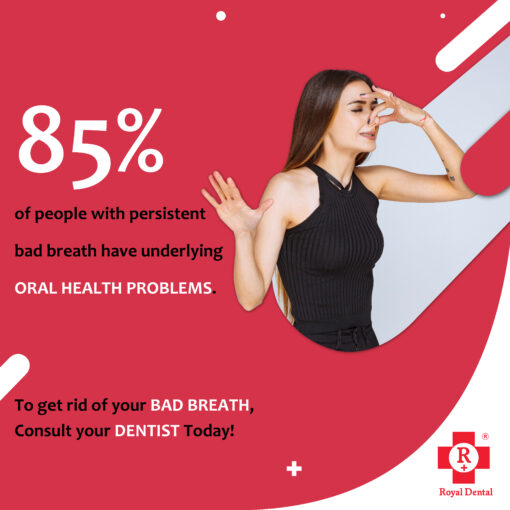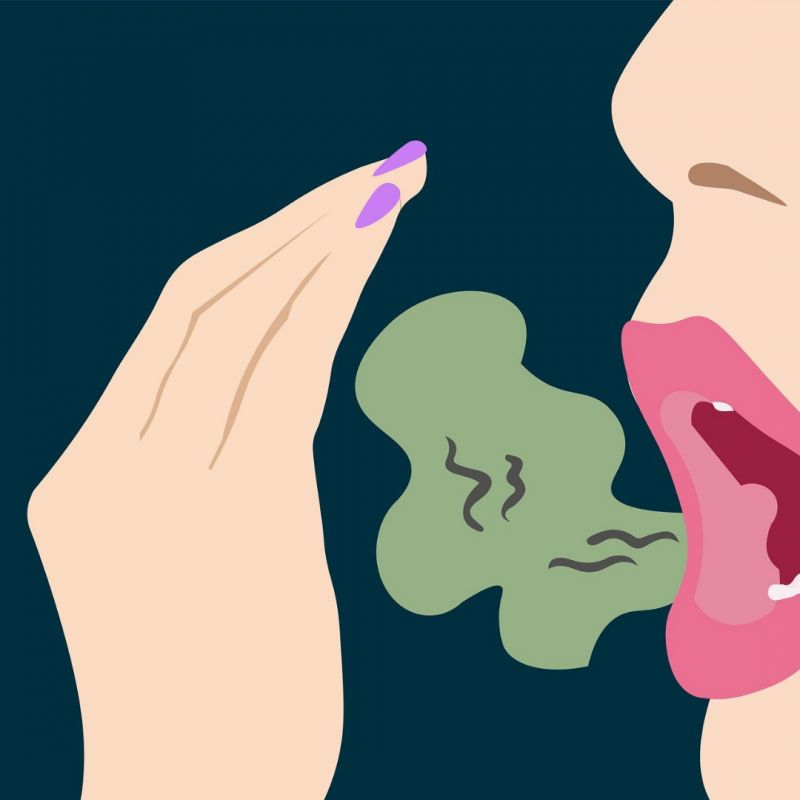Your breath is a reflection of your body and new research suggests that how you breathe can be an indicator of your medical condition as well. Normal breathing is very essential in maintaining the balance of body and it is also one of the key indicators of our health. The way we breathe can tell you a lot about ourselves, but did you know that your breath can be an indicator of illness? In this article, we list some common signs that indicate your breath could be an indicator of an underlying medical condition.
Diseases, such as some cancers, and conditions such as metabolic disorders, can cause a distinctive breath odor as a result of the chemicals they produce.
What is normal breathing?
It is a very regulated process that happens in the body automatically. It is a reflex that is triggered by certain factors, such as:
↪ Increase in carbon dioxide levels in the blood
⇾ Or an increase in carbon dioxide levels in the blood
↪ Increase in heart rate, blood pressure, blood flow to certain organs and tissues, etc.
Respiration process is an active and chaotic process where the muscles of our lungs and the respiratory system work together to exchange gases in the body, like oxygen and carbon dioxide, properly.

Common signs breathing depicts an underlying medical condition
- Shortness of breath – This is one of the most obvious signs of abnormal breathing. If the breathing is rapid or irregular and the reduced oxygen in the body is not being properly managed, you might feel short of breath.
- Abnormal breathing in sleep – Did you know that many people with breathing issues experience it while sleeping? This can be due to several reasons such as allergies, asthma, or sleep apnea.

Bad breath can indicate that disease or illness is present. Bad respiration can be caused by tonsil infections, respiratory infections, postnasal drip and other sinus problems, issues with the liver or kidneys, diabetes, and certain blood disorders.
- Feeling tired when performing simple tasks – Did you know that fatigue is also an indicator of abnormal breathing? This can be due to several reasons such as stress, allergies, anemia, etc.
- Feeling anxious – Anxiety is one of the earliest symptoms of hyperventilation, a type that is related to excessive stress.
Other Signs of Respiratory Distress
- Breathing rate.
- Colour changes.
- Grunting.
- Nose flaring.
- Retractions.
- Sweating.
- Wheezing.
- Body position.
Common causes of feeling short of breath are lung problems, such as asthma and chronic obstructive pulmonary disease (COPD) heart problems, such as cardiovascular disease and heart failure. infections in the airways, such as croup, bronchitis, pneumonia, COVID-19, the flu and even a cold.
How can you correct breathing problems at home?
Practise meditation – Meditation is one of the best ways to reduce stress and improve your breathing pattern.
Pranayama – This is one of the best exercises you can do to help with respiratory issues.
Avoid working in stuffy environments – Avoid working in stuffy environments or polluted areas.
Yoga – Yoga is a great way to deal with breathing issues, especially if you are dealing with asthma.
Herbal tea – Herbal tea like chamomile tea is known to help with anxiety and stress, hence improving it.
Eating healthy – Healthy eating includes eating foods that are rich in antioxidants that help with asthma.
Sleeping well – Sleeping well is important if you are dealing with breathing issues like sleep apnea.
Avoid smoking and alcohol – Smoking and alcohol are known to worsen breathing issues.
Avoiding allergens – Try to stay away from allergens like smoke, dust, and pet allergens that can worsen breathing issues.
What can you do if the breath illness symptoms persist?
If the above practices don’t help with abnormal respiration, you should go see a doctor. They should be able to identify the cause of your breathing issues and recommend a treatment.

However, if the doctor says that you have an issue that needs medication, then you should follow the doctor’s advice. There are certain conditions where lifestyle and diet changes are not enough and you will need to take medication to control the symptoms. If left untreated, dyspnea on exertion can progress to acute respiratory failure with hypoxia or hypercapnia, further leading to life-threatening respiratory or cardiac arrest or both.
What are the medical treatments for abnormal breathing?
- Medication – If your doctor confirms that you have asthma, COPD, or any other condition that requires medication, then you will be prescribed the medication.
- Breathing exercises – they are extremely helpful in managing and treating breathing issues. – Changes in diet – If the condition is related to diet, then the doctor might suggest certain dietary changes.
- Lifestyle changes – If the condition is related to lifestyle, then the doctor might suggest some changes.
- Surgery – If the condition does not improve with any of the above treatments and is severely impacting the patient’s quality of life, then the doctor might recommend surgery.
Conclusion
Respiration is an essential part of our lives and it is very important to pay attention to it. No matter what your age is, it is crucial to keep a check on your breathing. If you notice any of the signs listed above, it is important to take action. If you want to know more about your health and how to live a better life, head over to a dentist. Bad breath can be a warning sign that other diseases or illnesses are present. Postnasal drip, respiratory and tonsil infections, sinus problems, diabetes, liver and kidney issues, as well as certain blood disorders can all cause bad breath.






